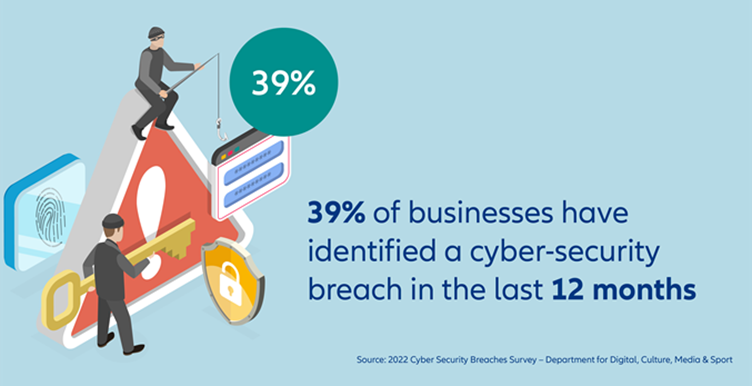Data is a valuable corporate resource. Businesses and organisations collect, store and analyse data in order to; understand their customers, tailor products to better suit their needs, improve customer experiences and optimise production so they can sell more efficiently.
However, data collection carries a range of potential risks that businesses must plan for, including data breaches.

Data protection law sets out what should be done to make sure everyone’s data is used properly and fairly. In the UK, the General Data Protection Regulation (GDPR) summarises how organisations must process and hold personal data, covering areas such as lawfulness, transparency, fairness, consent, and accountability.
Data protection law applies to all workplaces, business ventures, groups, clubs and enterprises of any type. Whether you’re a sole trader or self-employed, work for yourself or if you’re an owner or director, if you hire only a handful of staff or even if you don’t employ any staff at all - the rules are the same. It makes no difference where the error came from, what matters is that people could be harmed2.



























